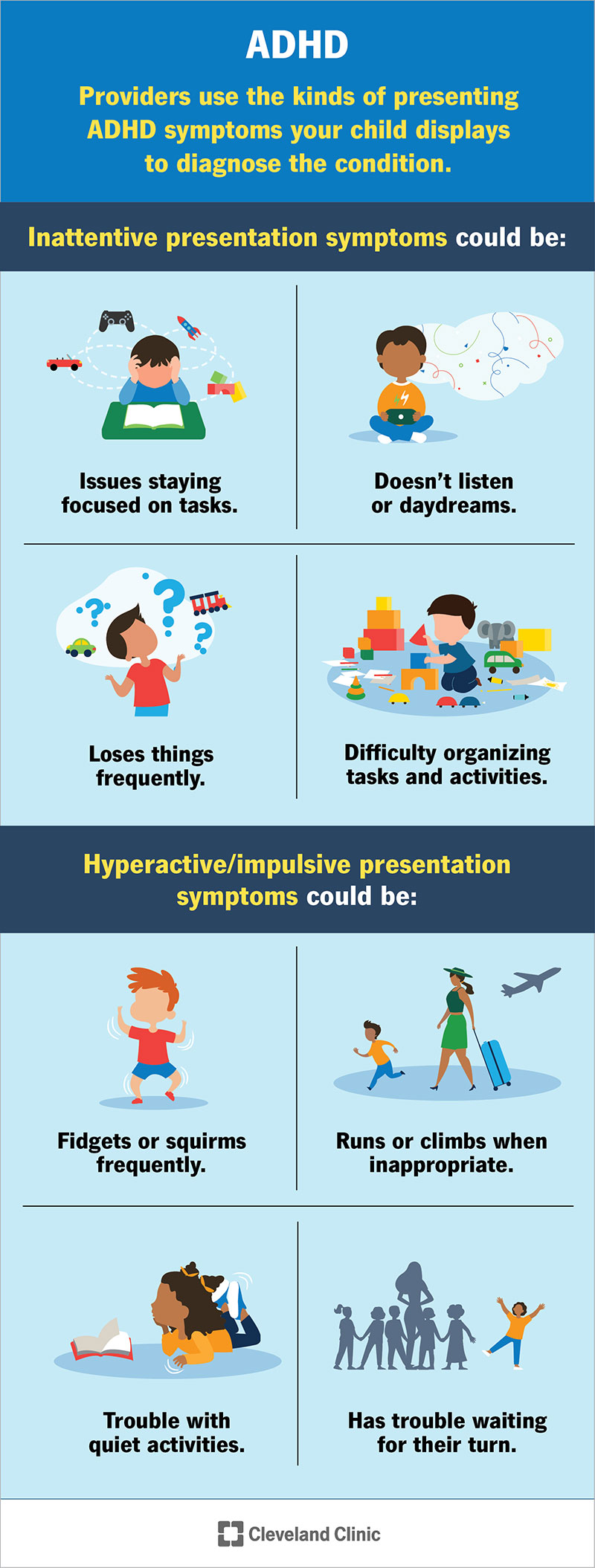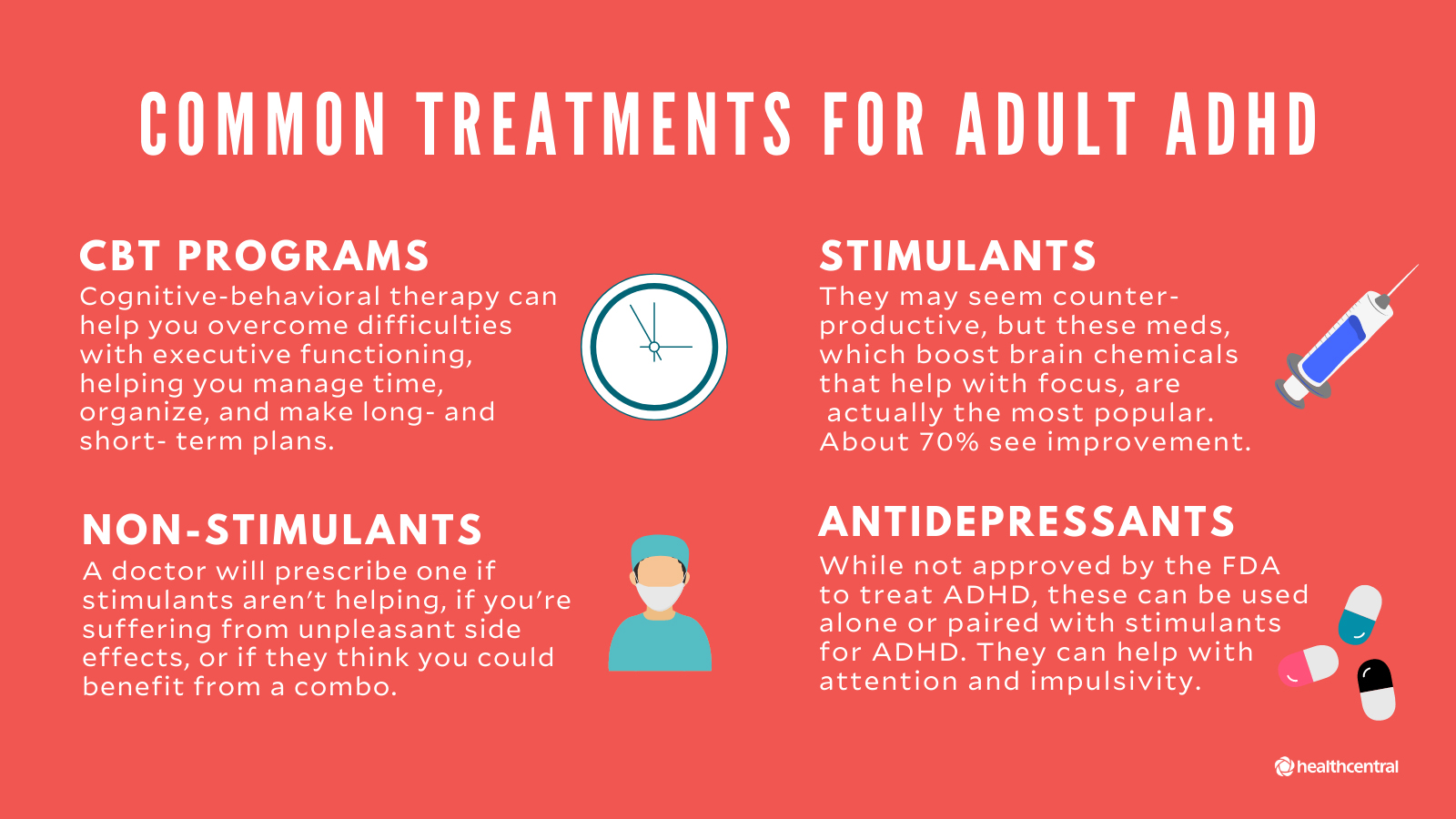The Advantages of Tailored ADHD Treatment Strategies for Better Results
The application of individualized ADHD therapy strategies has actually emerged as a pivotal method in improving therapeutic results for people impacted by this condition (ADHD treatment). By acknowledging the special manifestations of ADHD in each person, these tailored interventions promote greater involvement and inspiration, inevitably leading to extra efficient coping techniques.
Understanding ADHD Irregularity
Although Attention-Deficit/Hyperactivity Problem (ADHD) is usually regarded as a particular problem, its indications can differ significantly among individuals. This variability is influenced by a variety of factors, consisting of age, sex, coexisting conditions, and ecological contexts. For instance, children with ADHD may exhibit hyper behaviors, while grownups may primarily have problem with focus deficiencies. Sex distinctions likewise contribute, as men are a lot more regularly detected with ADHD and often show more obvious signs, whereas ladies may present with much less noticeable inattentiveness.
Moreover, people with ADHD may experience a range of emotional and behavior challenges, such as anxiety or oppositional defiance, that can complicate diagnosis and treatment. The interaction of these aspects can lead to varied experiences of ADHD, requiring a nuanced understanding of the disorder. It is additionally worth keeping in mind that ADHD can offer in different ways across different cultural contexts, affecting how signs are identified and addressed. This understanding emphasizes the significance of recognizing ADHD as a multifaceted problem, which asks for individualized techniques to therapy that take into consideration the special needs and experiences of each person.
Secret Elements of Customization
Individualized ADHD therapy plans are grounded in numerous vital parts that make certain efficient administration of the disorder. First, a comprehensive evaluation is critical, involving standardized rating ranges, meetings, and behavioral observations. This complete examination permits clinicians to understand the person's one-of-a-kind signs, strengths, and difficulties.
Second, the participation of multiple stakeholders, consisting of parents, educators, and the individual, contributes to an all natural sight of the person's needs. Cooperation promotes a supportive environment that can adjust to the person's context and way of living.
Third, treatment plans should be versatile and versatile, permitting for alterations based upon continuous feedback and the person's advancing needs. This flexibility allows the assimilation of different therapeutic methods, such as behavior treatments, psychoeducation, and drug monitoring.
Additionally, social and contextual variables should be taken into consideration. Acknowledging the person's history, worths, and preferences ensures that the treatment matters and respectful.
Last but not least, regular follow-ups and assessments are necessary to check progress and make necessary changes. By concentrating on these key components, personalized ADHD therapy strategies can dramatically enhance the performance of treatments, leading to improved outcomes for people with ADHD.
Improved Involvement and Motivation
To effectively promote enhanced engagement and inspiration in individuals with ADHD, it is important to integrate strategies that resonate with their rate of interests and strengths. Customized therapy plans that align with an individual's passions can cause raised engagement in restorative activities, promoting a feeling of possession and excitement for the procedure.
Using interactive and creative strategies can also considerably enhance inspiration. For instance, including gamification components or real-world applications of abilities can make tasks more enticing and relevant. This not just records attention but also reinforces discovering through satisfying experiences.
Additionally, establishing attainable and significant objectives customized to the individual can strengthen motivation. When people see signs of severe depression their progression towards directly considerable purposes, they are more probable to continue to be engaged. Normal feedback and acknowledgment of accomplishments can additionally endure motivation, producing a positive responses loophole that motivates continued effort.
Last but not least, cultivating a supportive environment where individuals feel recognized and valued can substantially impact their involvement levels. When therapy plans are created collaboratively, incorporating input from the person, they are a lot more most likely to feel purchased their journey, eventually leading to enhanced results in managing ADHD.
Improved Coping Approaches
Developing boosted dealing methods is essential for people with ADHD, as it outfits them with reliable tools to browse everyday challenges. A tailored treatment plan permits for the identification of details coping mechanisms tailored to the person's distinct needs and situations - ADHD treatment. Methods such as mindfulness, time management skills, and business approaches can be integrated right into everyday regimens, promoting a feeling of control and decreasing anxiety
Mindfulness practices, consisting of reflection and deep-breathing read what he said exercises, assistance people with ADHD concentrate their focus and control their feelings. Time administration methods, such as making use of timers or breaking jobs into smaller sized, manageable steps, can reduce sensations of bewilder. Furthermore, business devices like organizers and lists can boost efficiency and liability.
Long-term Favorable End Results
Carrying out customized ADHD therapy strategies can cause significant lasting favorable results for people. These tailored techniques, which consider one-of-a-kind signs and symptoms, preferences, and life situations, assist in a lot more effective management of ADHD signs and symptoms gradually. By focusing on the particular needs of the individual, these plans boost adherence to treatment methods and foster better involvement in restorative activities.

Additionally, tailored treatment plans can considerably decrease the risk of comorbid problems, such as stress and anxiety and anxiety, which are usually connected with ADHD. Early intervention and constant assistance assistance individuals develop strength and coping methods, promoting total mental wellness.
Ultimately, the lasting favorable end results of customized ADHD treatment prepares not just improve the lifestyle for individuals yet also add to their super depressed general well-being and success in different life domain names. This all natural method underscores the value of personalized treatment in managing ADHD effectively.
Conclusion
